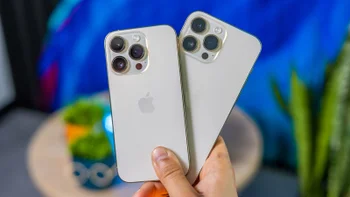TSMC hints 3nm iPhone 15 chip may prioritize battery life over performance

Apple's chip supplier Taiwan Semiconductor Manufacturing Company (TSMC) today kicked off volume production of chips based on the new 3nm technology. The iPhone 15 Pro and iPhone 15 Ultra's A17 chip will most likely also use this tech.
3nm chips will consume 30 to 35 percent less power at the same speed and the tech offers up to 1.6x logic density gain, meaning it will be possible to fit more transistors on chips, which should theoretically make them more powerful.
The 3nm tech is a full node strike from the 5nm tech which was used for the A14 Bionic, A15, and A16. The A16 Bionic chip which fuels the iPhone 14 Pro and Pro Max was based on an intermediary, 5nm-derivative node called 4nm.
Apple-centric website 9to5Mac has made an interesting observation: TSMC is focusing more on power efficiency than performance, and this might mean that the A17 chip will also focus more on thermals.
Today's flagship smartphones are more than fast enough for most tasks, so it might be a good idea to prioritize energy efficiency over raw performance and extend battery life. That said, TSMC had previously said that the 3nm tech would offer up to 15 percent better performance at the same power, so it will be up to Apple how it configures the A17 Bionic.
N3 technology will offer up to 70% logic density gain, up to 15% speed improvement at the same power and up to 30% power reduction at the same speed as compared with N5 technology." - TSMC
Apple has long held a lead over Android phone makers when it comes to chip performance but Qualcomm is catching up. The company's new premium chip, the Snapdragon 8 Gen 2, offers faster graphic performance than the A16 Bionic and the CPU performance is also not far behind. The performance has increased at the expense of thermals though so Apple would make the right call by not chasing speed.
The A17 Bionic chip will apparently be exclusive to the iPhone 15 Pro and Ultra, whilst the iPhone 15 and 15 Plus will most likely be fueled by the 4nm A16 chip.
The market response to Apple's new strategy of reserving the latest chip for the Pro models has not been good, resulting in tepid iPhone 14 and 14 Plus sales. To avoid a repeat of this next year, Apple may decrease the prices of the standard models.










Things that are NOT allowed: